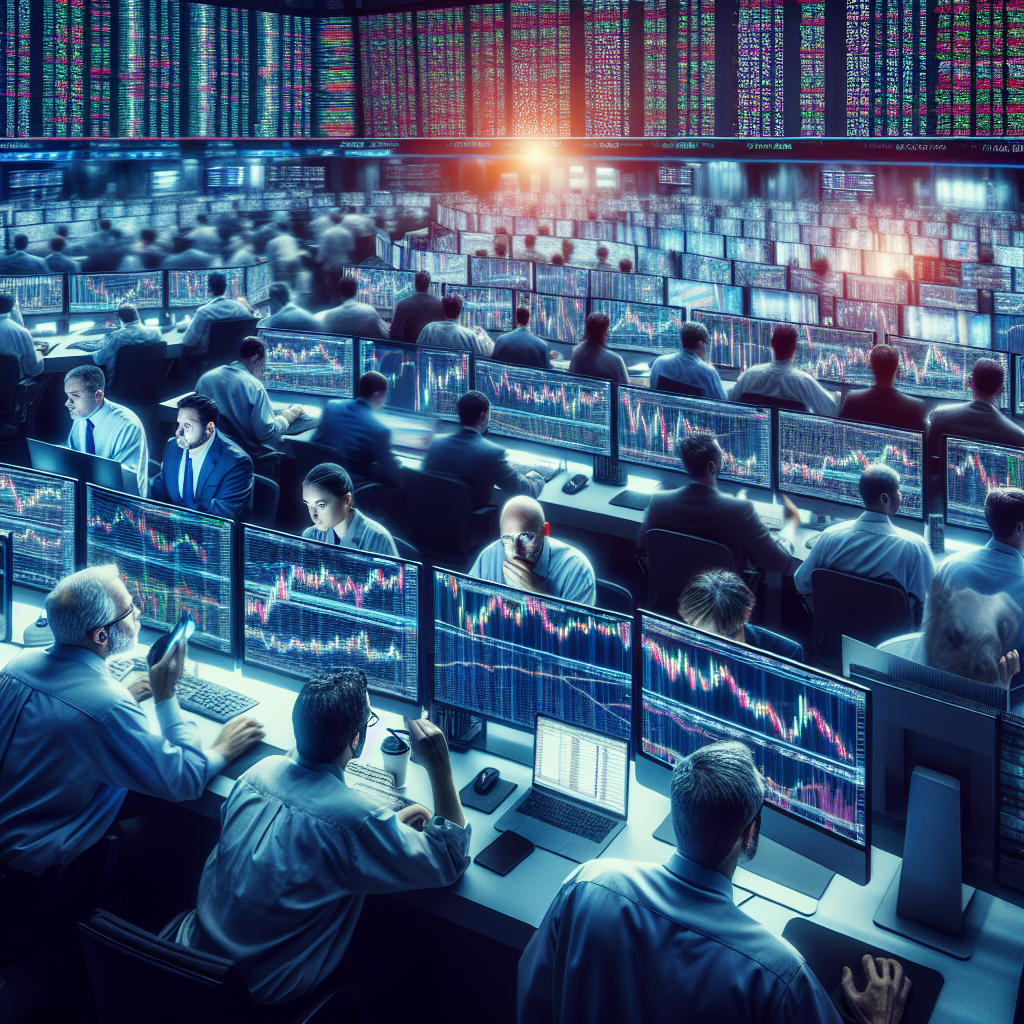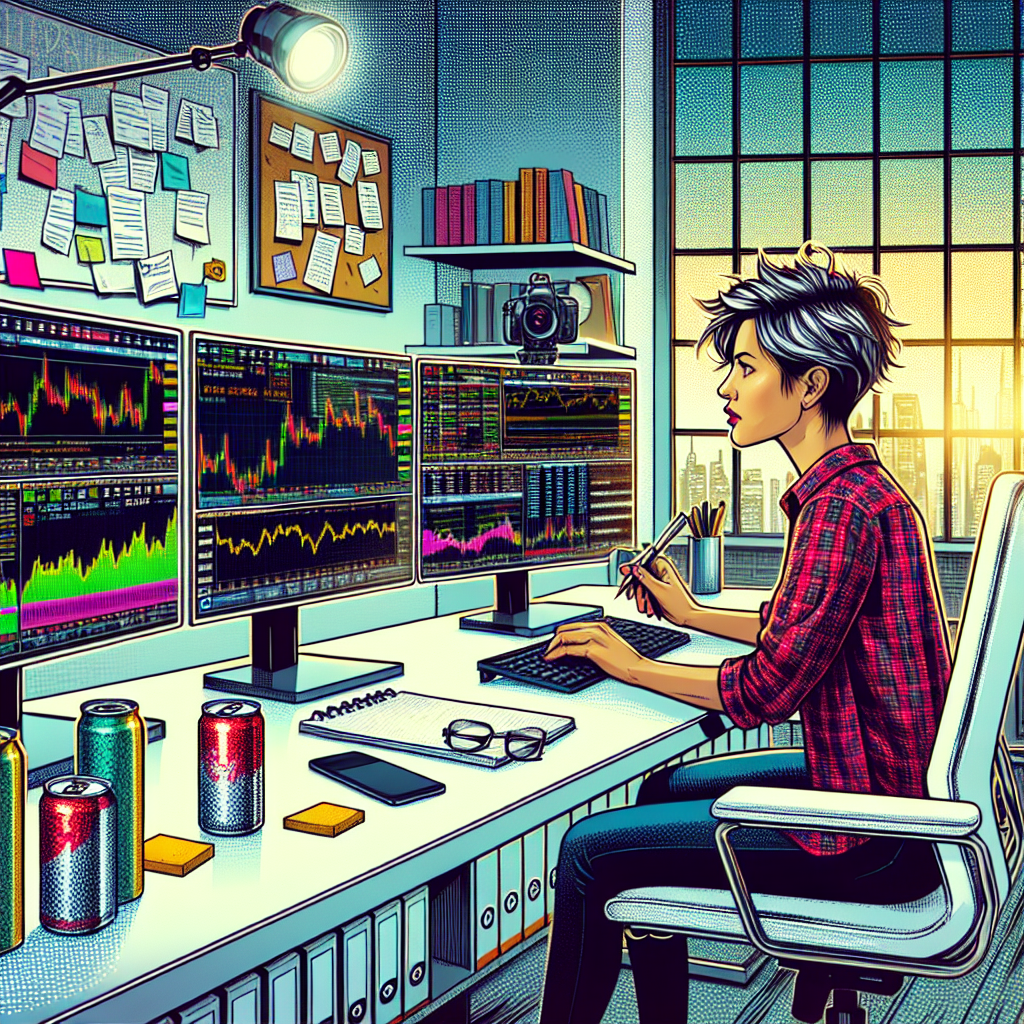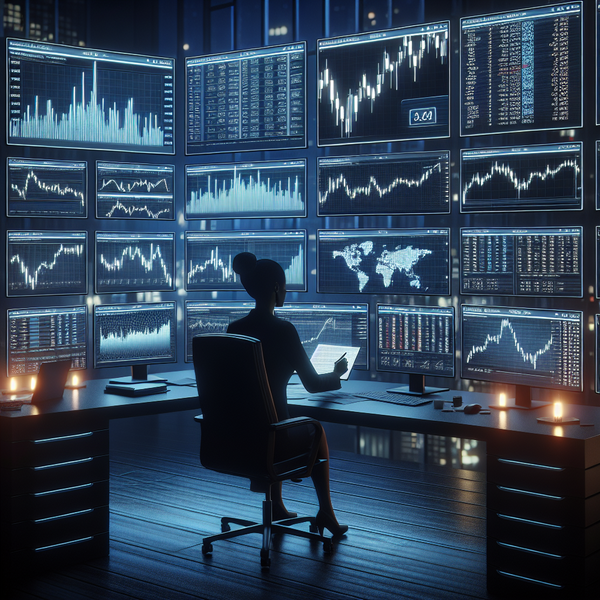Futures vs Forwards Contracts: What You Need to Know

Futures vs forwards contracts are at the core of many strategies across the trading world. Whether you are new to trading or exploring ways to diversify your portfolio, understanding the difference between these two derivative products can change the game. With daily headlines about market shifts and commodity price swings, these contracts could be the key to managing financial risk or unlocking new opportunities. Many people wonder how to trade futures or seek ways to use forwards to hedge exposures, but confusion abounds over their structure and purpose.
Futures vs Forwards Contracts Explained
The world of derivative contracts revolves around tools like futures and forwards, designed to help participants manage risk or speculate on price changes. When people discuss “futures vs forwards,” they’re talking about two agreements that, while similar in structure, cater to very different needs and situations in the market.
A futures contract is a standardized legal agreement, traded on organized exchanges, to buy or sell an asset at a predetermined price on a specified date in the future. This standardization means that all the contract specifications, such as quantity, quality, and delivery date, are set by the exchange itself. For example, when trading oil futures on the CME, you’re agreeing to buy or sell 1,000 barrels of crude oil, of a set grade, on a specific delivery date. This makes futures highly liquid, transparent, and easy to transfer between parties. For traders wondering what is trading futures, this is the hallmark: open market transactions that are marked to market daily and backed by robust exchange oversight.
What Is a Forward Contract?
When we discuss what is a forward contract, we’re outlining a private, customizable agreement that obligates two parties to transact an asset at a specified price on a specific future date. These contracts are generally not traded on public exchanges, making them “over-the-counter” (OTC) derivatives.
A forward contract is attractive to companies or individuals needing tailored agreements. Take, for instance, a wheat farmer and a bread company. They may agree in advance on a price for the entire harvest that will be delivered six months down the line. Both sides get protection, the farmer locks in revenue and the baker secures cost predictability, regardless of swings in the wheat market. This clear, customized arrangement often appeals to businesses managing unique project timelines or exposures.
What Is Trading Futures?
When traders discuss what is trading futures, they’re talking about buying or selling standardized contracts on futures exchanges. These agreements define the purchase or sale of an asset, like gold, crude oil, wheat, or financial instruments, at a set price on a specific date in the future. Traders use these contracts to speculate on price movements or to hedge risk.
Difference Between Futures and Forwards
When comparing the difference between futures and forwards, several key factors distinguish these contracts. Although both enable parties to buy or sell an asset at a set price at a future date, their execution, accessibility, and risk levels are not the same.
Futures contracts are traded on regulated exchanges where contract specifications like quantity, quality, and delivery date are standardized for every trade. This uniformity creates a highly liquid and transparent market with prices available publicly. All trades are settled daily through “marking to market,” which means gains and losses are calculated and debited or credited to trader accounts at the end of each trading session. This process ensures that risk is spread across all market participants, minimizing the chance of a catastrophic default.
One of the major differences lies in how traders can exit their positions. Futures can be bought and sold quickly due to established exchanges and many market participants. Forwards, being custom agreements, are rarely transferred to a third party and are usually held to maturity. The difference between a futures contract and a forward contract, therefore, comes down to access, standardization, risk management, and flexibility.

Which Contract is Safer to Trade?
Determining which contract is safer to trade, futures or forwards depends on your needs, risk tolerance, and goals. For most individual traders, futures contracts are considered safer. They are regulated by exchanges and benefit from daily settlement, which helps avoid runaway losses. Counterparty risk is also reduced, as a central clearing house guarantees that both sides fulfill their obligations, even in volatile markets.
Real-Life Example of Forward Contract vs Future Contract
Imagine you are a coffee exporter in Brazil nervous about next year’s market prices. You want to secure a deal today that locks in a sale for your coffee crop in six months. Your buyer agrees to a forward contract setting the price at $2.10 per pound, regardless of market swings. If prices fall to $1.80 at harvest, you still get $2.10, preserving your expected revenue.
Now picture a coffee trader in New York who wants to capitalize on global coffee price swings. Instead of negotiating private deals, they access the futures market. The trader buys a coffee futures contract for $2.05 per pound with a three-month delivery date. As the market price rises to $2.30, they sell the contract before expiry, capturing a profit. If the price drops, they could sell at a loss or roll the contract forward into the next period.
This real-life example of forward contract vs future contract shows each tool serving different market needs. The forward contract gives certainty to the coffee farmer and buyer, but exposes each to default risk. The futures contract, meanwhile, provides liquidity and transparency. The coffee trader can quickly enter or exit positions without worrying about the buyer’s ability to pay, thanks to the exchange’s central clearing process.
In both scenarios, the contracts help manage exposure to changing prices, but they do so via different methods. Understanding the strengths and weaknesses of each can help you determine which strategy matches your business or trading objectives.
How to Trade Futures Like a Funded Trader
Success in the futures market comes from understanding both the mechanics and the psychology of trading. Want to know how to trade futures like a professional? Here’s a practical roadmap that includes not just the basics, but the smart risk controls and analysis that set top traders apart.
How to Buy Futures Contracts
If you’re new, learning how to buy futures contracts starts with opening an account with a futures broker. Next, you’ll fund the account with the margin requirement for your chosen contract. Your broker will provide access to major exchanges where you can select from a wide range of futures products. Once you choose your contract, say, S&P 500 E-mini futures or crude oil, decide whether to buy (anticipating prices will rise) or sell (expecting a drop). After executing your trade, it is marked to market daily, so profits and losses are updated. You can close your trade before expiry or, in the rare case of physical delivery, settle in the underlying commodity.
Types of Futures for Beginners vs Pros
The types of futures available are vast. For beginners, index futures, treasury futures, or highly liquid commodities like oil and gold offer an easy entry point due to their standardization and robust market activity. These contracts have tight bid-ask spreads and plenty of educational resources. Pros, however, might target more complex derivatives, niche commodities, or volatility futures, depending on their risk appetite and specialization..
Types of Futures Contracts You’ll See in the Market
There are many types of futures contracts available, each tailored for different investors and hedging needs. The most common types of futures contracts deal with commodities such as oil, natural gas, gold, silver, and agricultural products like wheat, corn, and soybeans. Financial futures focus on products such as stock market indices, currencies, government bonds, and interest rates.
Example of a Futures Contract
Let’s go through an example of a futures contract: Suppose you believe gold prices will rise. You buy a gold futures contract specifying the delivery of 100 ounces of gold in three months at $2,000 per ounce. If gold prices climb to $2,100, you can sell your contract to another trader before settlement and pocket the $100 gain per ounce, totaling $10,000. If gold falls to $1,900, your loss would be $10,000 instead. Most futures traders don’t wish to take physical delivery, so they close their trade before the delivery date.
Difference Between a Futures Contract and a Forward Contract
If you want to define the difference between a futures contract and a forward contract in one sentence, it’s standardization and safety versus customization and flexibility. Futures contracts are traded on regulated exchanges, marked to market daily, and almost always close with the help of a central clearing party. You can buy or sell them anytime the exchange is open. Their pricing is public and their credit risk is minimal.
Forward contracts, instead, are tailor-made agreements between two parties with no exchange involvement. They aren’t marked to market and have no centralized risk monitoring. As a result, the possibility of one side defaulting on their agreement is higher. Forwards can be adjusted to fit precise needs appropriate for companies hedging very specific future events, but not as accessible for the average trader.
Final Words on Trading Contracts
Choosing between futures and forwards is a decision that reflects your goals, attitude toward risk, and preferred way of trading. If you crave transparency, liquidity, and robust safety nets, futures contracts will likely fit your portfolio best. Their standardized nature and daily settlements deliver peace of mind, while also supporting rapid entry and exit one reason so many active traders use them.
Forwards offer unmatched flexibility for those who need bespoke terms and can bear the added risk of dealing privately. These contracts can be game-changers for corporations hedging very specific exposures, but require a much sharper focus on counterparty strength and credit management.
Learning the details of how to trade futures, what is trading futures, and the types of futures contracts available will help you build a foundation for success. If you’re interested in joining a community of dedicated market participants and want to see firsthand where elite traders sharpen their skills, investing time in further study and real examples will serve you well as you continue your trading journey.



